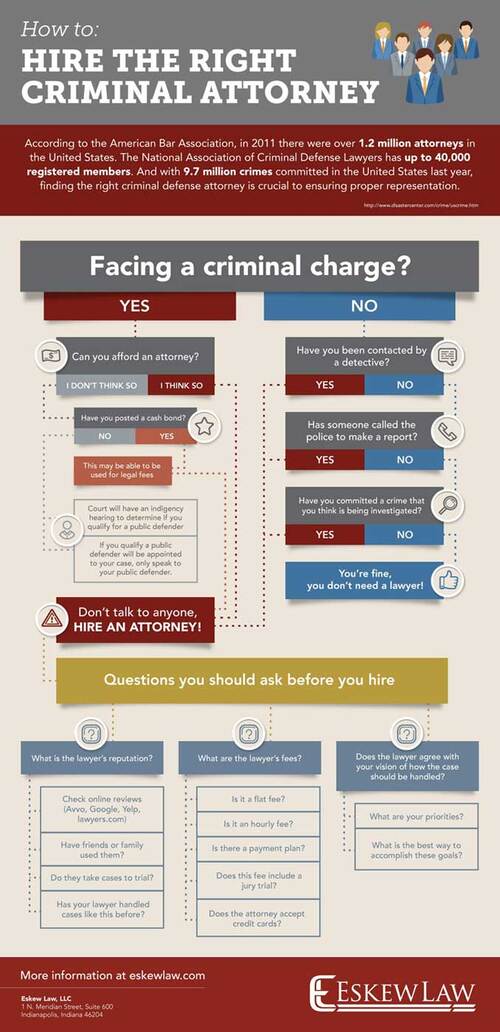Typical Myths Concerning Criminal Protection: Debunking Misconceptions
Typical Myths Concerning Criminal Protection: Debunking Misconceptions
Blog Article
Composed By-Anker Andreasen
You've most likely listened to the myth that if you're charged with a criminal activity, you have to be guilty, or that staying silent means you're concealing something. These widespread ideas not just distort public assumption yet can also influence the outcomes of lawful proceedings. It's vital to peel off back the layers of misconception to recognize real nature of criminal defense and the legal rights it shields. What happens if you understood that these myths could be dismantling the very foundations of justice? Join the discussion and explore how unmasking these misconceptions is essential for making certain fairness in our legal system.
Myth: All Offenders Are Guilty
Commonly, individuals incorrectly believe that if somebody is charged with a criminal activity, they have to be guilty. Highly recommended Internet page might presume that the lawful system is foolproof, yet that's much from the fact. Costs can come from misunderstandings, incorrect identities, or not enough proof. It's critical to keep in mind that in the eyes of the legislation, you're innocent till proven guilty.
This assumption of virtue is the bedrock of the criminal justice system. It ensures that the burden of proof lies with the prosecution, not you. just click the next document should establish beyond a reasonable question that you dedicated the crime. This high standard safeguards people from wrongful convictions, making sure that no person is punished based on presumptions or weak proof.
Moreover, being charged does not suggest completion of the roadway for you. You can protect on your own in court. This is where a knowledgeable defense attorney comes into play. They can test the prosecution's situation, existing counter-evidence, and supporter in your place.
The intricacy of lawful procedures commonly calls for expert navigation to secure your civil liberties and accomplish a fair outcome.
Myth: Silence Equals Admission
Many think that if you pick to stay silent when implicated of a criminal activity, you're basically admitting guilt. Nonetheless, this couldn't be better from the fact. Your right to continue to be silent is safeguarded under the Fifth Amendment to prevent self-incrimination. It's a lawful secure, not a sign of regret.
When you're silent, you're really exercising an essential right. This prevents you from stating something that may unintentionally damage your defense. Keep in mind, in the warm of the minute, it's easy to obtain confused or talk erroneously. Law enforcement can translate your words in ways you really did not plan.
By remaining quiet, you offer your legal representative the very best possibility to safeguard you properly, without the complication of misunderstood statements.
Furthermore, it's the prosecution's task to show you're guilty past a reasonable question. Your silence can't be utilized as proof of regret. In fact, jurors are instructed not to analyze silence as an admission of shame.
Misconception: Public Defenders Are Inadequate
The misconception that public protectors are inadequate continues, yet it's vital to recognize their crucial duty in the justice system. Lots of believe that since public defenders are frequently strained with cases, they can not provide high quality protection. However, this overlooks the depth of their dedication and expertise.
Public defenders are fully licensed attorneys that've selected to specialize in criminal law. They're as certified as personal attorneys and frequently extra skilled in trial work because of the volume of cases they take care of. You may think they're much less determined because they do not pick their clients, however in truth, they're deeply dedicated to the suitables of justice and equal rights.
It is essential to remember that all lawyers, whether public or personal, face difficulties and constraints. Public defenders frequently work with fewer resources and under even more stress. Yet, they regularly demonstrate resilience and creative thinking in their defense approaches.
Their function isn't simply a task; it's a goal to ensure that everyone, regardless of income, gets a fair test.
Conclusion
You might believe if somebody's billed, they need to be guilty, but that's not how our system functions. Picking to remain quiet does not imply you're admitting anything; it's simply clever self-defense. And don't ignore public defenders; they're devoted professionals committed to justice. Bear in mind, everybody is entitled to a reasonable test and experienced depiction-- these are basic civil liberties. Allow's shed these myths and see the lawful system wherefore it truly is: a location where justice is looked for, not just punishment dispensed.
